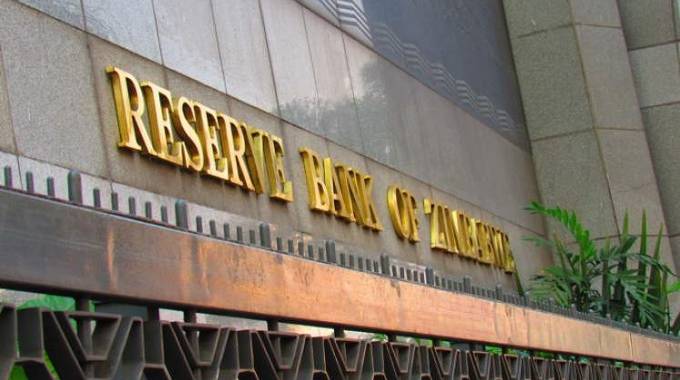EDITORIAL COMMENT : RBZ must do more to regain public confidence

After two banks were implicated in authorising massive withdrawals by two of their clients — which withdrawals were soon perceived to have been offloaded onto the parallel market — the Reserve Bank of Zimbabwe (RBZ) was swift to institute an investigation into how this had been possible.
The outcome of the investigations into the conduct of the two banks and their clients is going to be significant for what the monetary authorities will or will not do, whatever explanation the RBZ will tender.
At the heart of the probe’s anticipated outcome is the question of confidence in the monetary authorities and the public’s perception of the banking system.
Two developments in the past two decades have contributed to an erosion of the public’s confidence in the banking system.
The first was when depositors woke up to find the value of their savings, as well as pensions, wiped out.
The second development is one which continues to manifest itself up to the present — depositors having to queue up at banks in order to withdraw their savings, but only discovering they are severely limited in what they can access.
It was, therefore, particularly galling, to discover that while depositors — the majority of them pensioners, who queued for inordinately long hours — were being limited to withdrawals of $100 a week, some individuals had withdrawals of $15 000 and $44 000 fast-tracked on the first day the new coins and notes were introduced onto the market.
The immediate observation is that rules are being applied differently to bank clients in a case that seems to suggest that some depositors are more equal than others.
It may be argued that some rules allow clients to apply for certain amounts above the withdrawal limit, and upon assessment the particular bank can issue the funds.
But the cases regarding the two banks appear suspicious, especially the motive behind displaying the money on social media.
Some degree of fairness to all depositors would have been acceptable, given the prevailing situation.
Banks should treat their clients equitably.
The RBZ says while it is undertaking its own probe, the two cases have been referred to the police for further investigations.
One of the banks implicated has sought to suggest that the client was in a casino business and that the money was for a customer who had won the amount.
This explanation, however, needs further interrogation.
Is it the norm that casino gamblers are paid in cash? Since when, especially when the trend is that payment is made out into the winner’s bank account and there is generally encouragement to use plastic money?
If banks are capable of dispensing such large amounts, why are they punishing other clients by putting a cap on weekly withdrawals?
In any case, has it been the practice that some bank clients are allowed such cash withdrawals at seemingly short notice?
And, is it also true that gambling entities such as Mashonaland Turf Club, the State Lotteries, Africa Lotto and (Pink) Lotto can and are able to pay winners in bulk cash?
If not, what warrants this departure in practice?
The explanations by the banks appear more motivated by a desire to forestall and mislead any attempts at getting to the bottom of what really is going on at the two banks.
And worryingly, is whether this conduct is specific to the two banking institutions implicated or is a sector-wide epidemic.
Sadly, it appears there is more to this matter than meets the eye, and that the only mistake in this case was the excitement and naivety of the “cash baron” in posting the images of the brand new notes and coins on social media platforms.
But it is possible that the “cash baron” who posted the images was, in fact, advertising that he/she had a consignment of the new coins and notes and was ready to transact with the public desperate for cash.
The RBZ has declared that, “Appropriate disciplinary measures shall be taken against the bank and customer and anyone else found responsible for such malpractices, which bring the RBZ and the entire banking system into disrepute.
Such malpractices cannot and should not be condoned.”
The RBZ statement suggests whatever transpired between the two banks and their clients is an aberration.
If that is the case, then it is time the monetary authorities showed some teeth.
It is common cause that despite declaring war on foreign currency dealers, it has been business as usual on the streets with the traders brazenly exhibiting their activities even to law-enforcement agents passing by.
The RBZ has the choice to act decisively and retain the confidence of the majority of the banking public or forever rue the day it decides to turn a blind eye.









Comments